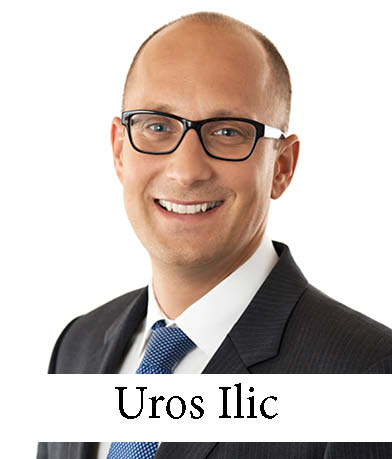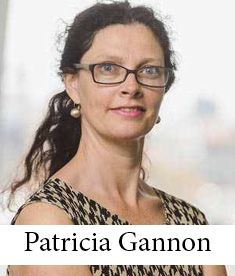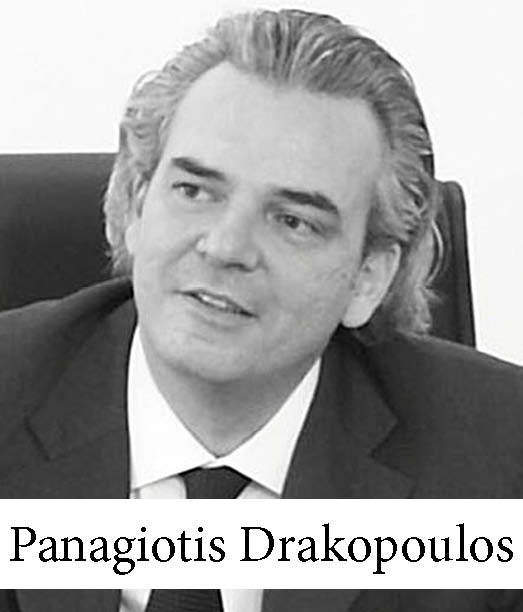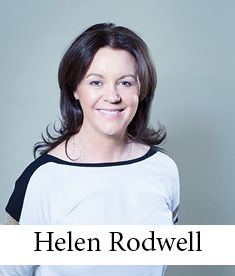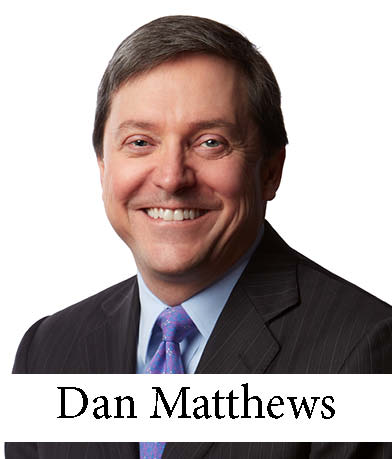Wolf Theiss’ sole focus is the CEE/SEE and we can’t think of a better place to have been in 2015 and to be in the years to come.
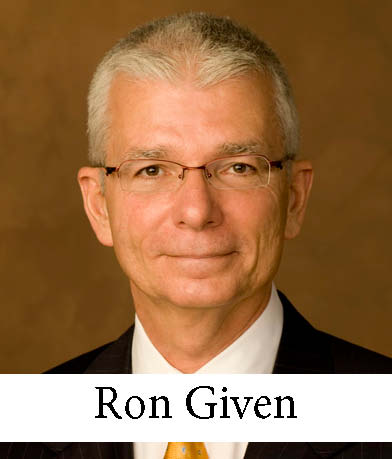
Our 13 offices cover a geographic area equal to 27% of the United States, another of the world’s premier legal markets, with 50% of its population (approximately 170 million people). Unlike the United States, each of our mixture of EU/non-EU countries boasts its own language, historical legacies, and stage of societal / governmental / economic development. In this context our 320 lawyers have assembled a single partnership which is the largest fully integrated, full service law firm in the region with top rankings from Chambers, IFLR, Legal 500 and Who’s Who Legal.
Our footprint challenges generalizations even from those of us who lawyer in the CEE/SEE on a daily basis. However, we have noted the following in 2015: (a) Robust M&A activity, but no boom; (b) Varying activity on a country-by-country basis; (c) Big-ticket global M&A spun off work to the region (e.g., the July 2015 merger of cement companies Holcim and Lafarge); (d) The CEE/SEE benefited from inbound European M&A trends; (e) Intense and opportunistic scouting for targets, both by strategics and private equity; (f) Consolidation was a driver (telecoms, insurance, banks, retail, pharma wholesale); (g) Distressed opportunities and “special situations” gave rise to transactions (e.g., Dutch Heineken’s purchase of our client Slovenian brewer Lasko); (h) Restructuring work was still plentiful; (i) Big-name-private equity pursued mid-cap transactions, something new in the CEE/SEE (e.g., KKR’s purchase of Belgrade-based cable company SBB/Telemach); (j) NPL transactions continued – banks are keen on cleaning up their balance sheets; (k) Regulators pushed for consolidation in some jurisdictions (e.g., banks in Slovenia); (l) Privatizations are still taking place (e.g., Slovenia, Serbia, Romania, Ukraine); (m) Chinese investors are scouting for opportunities (including Chinese private equity funds; (n) Russian investors look for EU-based targets to diversify; (o) The CEE/SEE region is generally perceived as a relatively stable “emerging market”; (p) Russia vs. EU is a big theme, primarily in the energy sector; (q) The disputes practice remained robust with the strongest growth being in the white collar crime and compliance areas.
Although our own positive revenue growth of the last several years continues, 2015 will not see a dramatic jump over 2014, just as 2014 revenues did not dramatically overtake our 2013 experience. The year end is again shaping up strong. Disputes continue to constitute an ever larger portion of our overall book of business.
We have certainly enjoyed our share of blockbuster deals. The parade was led by state-owned Austrian bank Hypo-Alpe-Adria’s sale of its SEE network to our client Advent and the EBRD. We also advised a bidder in Enel’s contemplated sale of its stake in the Slovak Republic’s Slovenske Elektarne, a deal that failed to make it to the finish line. Wolf Theiss also advised OBI, a major German DIY group, on the acquisition of a majority of the business of bauMax AG, a DIY group in our region, in the largest and certainly most complex distressed asset M&A transaction ever done in CEE/SEE. That deal required the close, careful, and collaborative attention of nearly 50 of our lawyers for more than a year in Austria, Slovenia, the Czech Republic, and Slovakia – and represents to us a true validation of our business model.
It is no surprise that Ukraine is a heavy lift these days. The uncertainty has just gone on too long and while there is considerable hope and promise there is just no clear light at the end of the tunnel. Nonetheless, our Kyiv team remains positive as well as busy on such interesting transactions as the Australian insurance company QBE’s sale of its Ukrainian business to Canadian Insurer Fairfax.
The law business is a gem in Slovenia. In addition to the Lasko and OBI matters, our lawyers in Slovenia helped Deutsche Bahn Group acquire a majority interest in the Slovenian bus operating company Alpetour. Bank M&A, distressed M&A, NPL’s and bond issuances have also been plentiful. We see continued privatization activity in 2016.
We were disappointed that Croatia’s oil and gas concessioning prospects stalled. We are also concerned about the strength and direction of the government that will arise out of the recent elections. However, we remain hopeful regarding the LNG import terminal project on the Island of Krk and appreciated the opportunity to represent British American Tobacco in its EUR 550 million acquisition of TDR d.o.o. This was certainly the Croatian 2015 deal of the year by any measure.
Things remain promising in Bulgaria. It continues to be a major destination for information technology and business process outsourcing as well as traditional manufacturing (as an alternative to China!). We see (and are a part of) genuine, broad-based momentum for a more positive and inviting business environment. And there are great deals in the here and now. For example, we participated in the Mtel/Max national 4G roaming deal as well as the refinancing of an office park that is the largest in Southeastern Europe. We also represented the EBRD and Deutsche Bank with their financing of the acquisition and launch of the first Bulgarian commercial satellite.
The Czech and Slovak markets both had strong years. M&A activity is up in each. Although certainly not at pre-crisis levels, commercial real estate is coming back in the form of both sales and financings. An example of this is our work for Czech PPF Banka on the refinancing of the P1 Industry Park Project in Bratislava (owned by the international property fund AlfaGroup).
Our Prague office began the year participating in the landmark Palladium shopping mall sale, the largest property deal ever recorded in the Czech Republic and the largest single asset transaction in Central Europe ever. The office was also on the buy side of the purchase of the Varyada shopping mall in Karlovy Vary by EPG and has been called upon repeatedly to assist in the ongoing consolidation of the Czech financial sector, including Alpha Group’s acquisition of Zuno Bank.
The Czech and Polish markets, along with Austria, continue to generate considerable intra-regional cross border work. The Czech Republic is really a stand-out in this regard. Our Czech origin clients CEZ, APS Holding, and EPH are particularly active in the region and beyond. We also helping the Czech real estate developer CTP acquire properties in Hungary. This kind of work obviously plays to the strength of firms like Wolf Theiss.
Hungarian real estate transactional work has generally been more active this year. We have helped both Volksbank and Erste move substantial properties out of their portfolios. In addition to such trading of existing inventory, the market is expecting new development investment in the coming year. In general there is a friendlier environment for business, with the energy, banking, and advertising sectors reasonably expecting more stability. The market has been heavily dependent on EU funds for growth and it’s a bit worrisome that EU budgeting cycles may cause some disruption in putting funds to work next year. But there is plenty to be positive about. We are particularly pleased to be representing listed Chinese industrial machinery concern Himile which is setting up its very first overseas factory in Hungary. And it would even appear that with the passage of time Prime Minister Orban’s strategies for dealing with refugees and saving Schengen are viewed as more prescient than tyrannical.
Romania has also had its share of attention grabbing deals. We advised UniCredit in acquiring most of the remaining shares of its local banking unit, one of the largest transactions in the Romanian banking M&A market in recent years, and helped IKEA become one of the largest Romanian forestry owners. Real estate work was also up generally but the NPL market seems a bit stalled. The ongoing anti-corruption campaign has certainly helped the white collar crime and criminal practices. While these efforts and the current “cabinet of technocrats” may have some short term chilling effects on business, they should be positive in the medium and longer term.
Our representation of one of the bidders for the Telekom Srbija privatization has kept things brisk for us in Belgrade. The possibility for investment activity in the Smederevo steel mill remains (perhaps from Chinese interests); talk of airport privatization continues; and at least the grounds have been cleared for the “Belgrade Waterfront” real estate project. The government is stable and IMF relations are good. Last year’s standoff between lawyers and notaries has been resolved positively.
There isn’t a lawyer in Albania from an international firm that hasn’t wished at some point this year that there was more work on her desk. There has just been a lot of deal postponement. That said, Wolf Theiss continues to be engaged in interesting World Bank assignments and advised JP Morgan and Deutsche Bank on the issuance of a Republic of Albania Eurobond valued at EUR 450 million.
Our office and developments in Bosnia and Herzegovina continue to please us. We were involved in the Aluminij d.d. Mostar restructuring and the construction of Unit 7 of the Thermal Power Plant Tuzla as well as the Banovici power station. Reform initiatives and legislative changes are positive. BiH certainly remains a complex place to do business, but the trends are relatively positive in our view.
Although we don’t see a near term dramatic effect from legislative changes in any of our markets, two things are worth mentioning for Poland. A new auction based support scheme for renewable energy will be implemented in 2016 that could invigorate the sector. Also, a new bankruptcy law with Chapter 11-type features will come into effect that should allow creative lawyers to craft more positive solutions for troubled businesses.
Poland’s incredible stretch of great economic activity continued to benefit law firms generally this year, including ours. It should be noted, however, that the new conservative government is being watched carefully to see if its rhetoric actually turns into something that is broadly negative for business.
We think 2015 has generally been a happier year for lawyers than 2014. For sure, our business remains very competitive, particularly on pricing. However, we see some relief by a greater acceptance of success fees and other risk sharing arrangements.
As we observe the global firms that are competing with us in CEE/SEE, we are reminded of the Chinese expression about “sleeping in the same bed but dreaming different dreams.” We can appreciate the continuing difficulty in reconciling the law practices in such markets as Hong Kong, New York, and London with the realities of markets like Warsaw, Prague, and Budapest. The verein structure adopted by many of the global firms accommodates different dreams to a certain extent. Dentons is a firm benefiting from such structural flexibility but we also believe that thus far its continued impressive growth has more to do with smart management, great lawyers, and hard work.
We are certainly not immune to the stresses that accompany any evolving partnership. Some change is inevitable. Our “international but regional” footprint is not something that is likely to change, though. We are a much more comfortable referral for most non-CEE/SEE law firms knowing that we do not compete with them in their own markets. A Wolf Theiss New York, London, or the like is simply not in the cards. Independence also gives us the chance to write our own story, in our own time and way.
It also seems to us that the “opportunity ceiling” in many of the region’s firms is becoming all the more pronounced, a development particularly evident in Warsaw and Prague. The lawyer generation that jumped in the game with the opening of the legal market has become established senior hierarchy and accustomed to the perks. The issue is their relative youth – many are still in their early 50’s with no intention of going away any time soon. In addition to spawning boutiques and spin-offs, this reality is creating a type of permanent underclass of very talented and client ready senior associates and counsel who are attracted to firms like Wolf Theiss, which still embrace growth and have no ceilings of any sort.
What can be said of 2016? Considering the recent horrors in Paris and so many other parts of the world, we know that many forces are intent on disrupting life and economic prospects. We will concentrate on things within our control. We will continue to refine our firm’s collaborative culture, size ourselves correctly for the opportunities we target, and constantly work on improved execution. No matter what, we want to be a place where our lawyers, staff, and clients look forward to coming every day to learn, work, share, advance, and have fun among friends and colleagues. That’s success to us.
Ron Given, Co-Managing Partner, Wolf Theiss Poland
This article was originally published in the 2015 Special Year-End Issue of the CEE Legal Matters Magazine. If you would like to receive a hard copy of the magazine, you can subscribe here.




